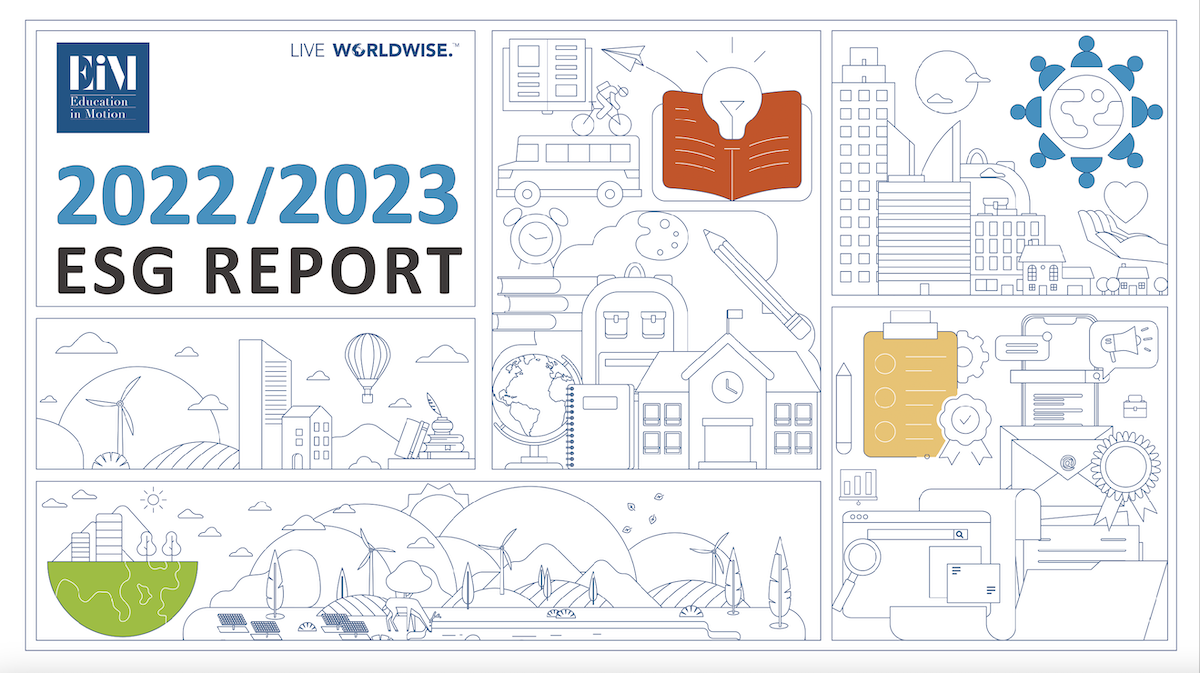EiM launches 3rd ESG report

We are excited to launch EiM’s third Environmental, Social, and Governance (ESG) Report, covering the academic year 2022-2023. Our annual ESG report represents our commitment to developing, measuring, maintaining, and reporting on sustainable and global citizenship practices in our schools and across our brands.
Across all EiM schools, we are guided by our “students come first” philosophy – where each student’s unique strengths and interests are recognised and celebrated. Today, it is more apparent than ever that this approach is crucial to nurturing intrinsic motivation both in and out of the classroom, inspiring students to feel a connection to people and planet and make contributions towards a better world for all. As part of our commitment to sustainability, global citizenship and robust governance, our ESG report is not just an exercise to highlight our achievements as a group, but also a chance to provide ourselves with an honest assessment of where we are and what more we need to be doing.
What is ESG?
ESG stands for Environmental, Social, and Governance Reporting and is an approach that evaluates the extent to which an organisation works on behalf of goals within environmental, social, and governance areas. The ESG report follows the Global Reporting Initiative Standards (GRI) issued by the Global Sustainability Standards Board. We have created four focus areas under our ESG approach: Learning, Planet (E), People (S), and Policy (G), setting out initiatives and progress indicators at a group and individual school level.
Key Highlights from EiM's ESG Report
Our third ESG report lays out in detail our priorities in the 2022/2023 academic year, organised under Learning, Planet, People, and Policy, the four ESG pillars that provide the lens through which we focus our sustainable goals, progress indicators, and outcomes.




Finally, we would like to acknowledge the students, educators, staff and other stakeholders who contributed to embedding sustainability and global citizenship into our mission on a daily basis. This report reflects their dedication and achievements in advancing sustainability and global citizenship education across our global network of schools, and we are pleased to feature some of their contributions in their own words in this report. By holistically engaging our stakeholders, the ESG report plays a key role in identifying material issues that matter most – incorporating perspectives and feedback from across and outside the group will help us to set a strategic direction, while revising and enhancing areas that require further strengthening such as governance.
Our aim is to inspire future leaders who are not only equipped to navigate global challenges but also prepared to innovate towards a sustainable future for everyone – and we extend an invitation to all of our stakeholders to join us in this endeavour and exciting journey.

